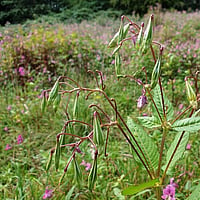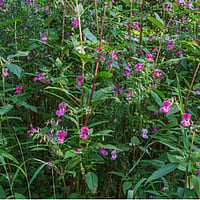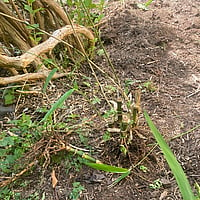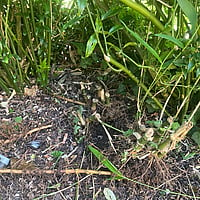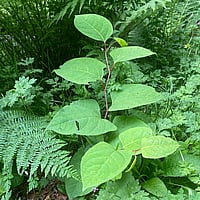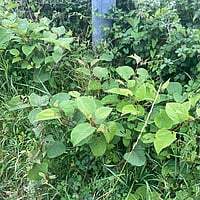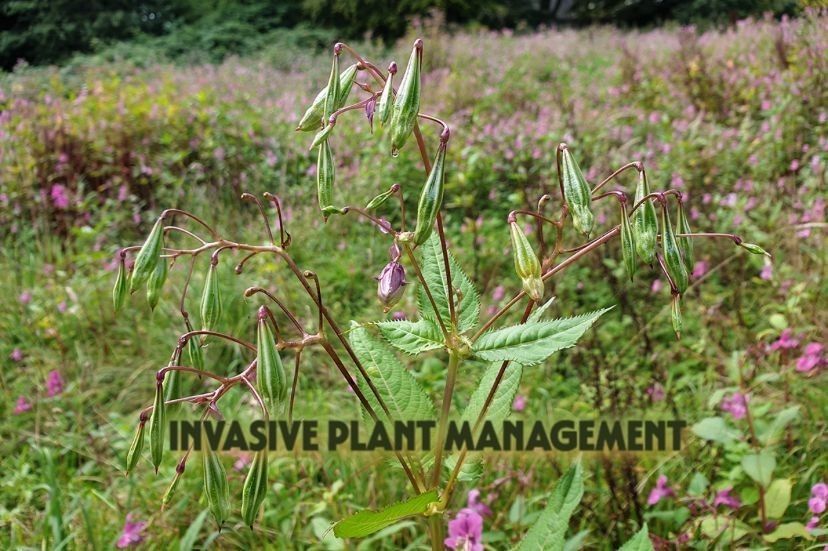Invasive Plant Control in Ivybridge, Plymouth & South Hams
Protect your land with invasive plant management in Devon. Sherlock’s Tree and Countryside Services provides safe, effective clearance to restore balance and safeguard native habitats. Call now for expert ecological solutions that prevent long-term damage
At Sherlock’s Tree and Countryside Services, we provide expert invasive plant identification, removal, and long-term management across Ivybridge, Plymouth, and the wider South Hams. With over 33 years of hands-on experience and a strong foundation in environmental consultancy, we specialise in controlling aggressive non-native species including Japanese knotweed, Himalayan balsam, bamboo, and poison hemlock.
Our approach is rooted in habitat-sensitive vegetation management, combining technical precision with ecological responsibility. We understand the serious impact invasive plants can have on native biodiversity, soil health, and landscape integrity, and we tailor our methods to restore balance while protecting local wildlife.
Whether you require:
• Targeted Japanese knotweed removal with follow-up monitoring
• Himalayan balsam clearance using low-impact techniques
• Bamboo excavation and rhizome control
• Hemlock identification and safe disposal
• Or a site-specific invasive species management plan
—we deliver effective, compliant, and environmentally responsible solutions for domestic gardens, commercial sites, nature reserves, and council land.
Our services include seasonal treatment schedules, and ongoing site monitoring, ensuring long-term success and minimal disruption to surrounding habitats.
Bamboo Eradication in Ivybridge: wildlife-friendly land care across Ivybridge, Plymouth, and the South Hams.
This week’s project involved reclaiming a planting bed in Ivybridge that had been heavily infested with bamboo — a fast-spreading species that can overwhelm borders and suppress biodiversity.
Step 1: Reshaping Ornamentals and Clearing ArisingsThe site featured a mature camellia, rhododendron, and bay tree, all partially engulfed by bamboo. I began by reducing and reshaping these ornamentals to improve airflow and structure. Once the canopy was opened up, I cut back the bamboo culms and removed all arisings — including stems and debris — to prevent re-rooting.
Step 2: Excavating Bamboo RunnersBamboo spreads underground via aggressive rhizomes, which can travel metres beyond the visible growth. I manually traced and dug out the runners, working carefully to protect surrounding root systems while targeting regenerative nodes. This excavation is essential for long-term bamboo control.
Step 3: Targeted Glyphosate Stump Treatment to remaining stumps.
This spot spraying method ensures precision and minimizes impact on surrounding vegetation — a responsible approach to chemical control in ecologically sensitive gardens.
Planned Revisit: Follow-Up Excavation and SprayingDue to bamboo’s regenerative nature, I’ll be revisiting the site at least twice to continue digging out runners and spot spraying any regrowth. This multi-stage approach ensures thorough eradication and supports the client’s goal of restoring the bed for wildlife-friendly planting.
Why It Matters
Unchecked bamboo can dominate planting beds, reduce biodiversity, and damage soil structure. By combining mechanical removal, ornamental care, and targeted chemical treatment, I’m restoring this Ivybridge garden to a healthier, more balanced state — ready for pollinator-friendly planting and long-term stewardship.
Serving Ivybridge, Plymouth & South HamsWhether you're dealing with invasive species, overgrown hedges, or need ecological contracting for council or domestic sites, Sherlock’s Tree and Countryside Services delivers expert vegetation management with a focus on biodiversity, compliance, and long-term care.
Contact us today to discuss your site’s needs or request a quote.

